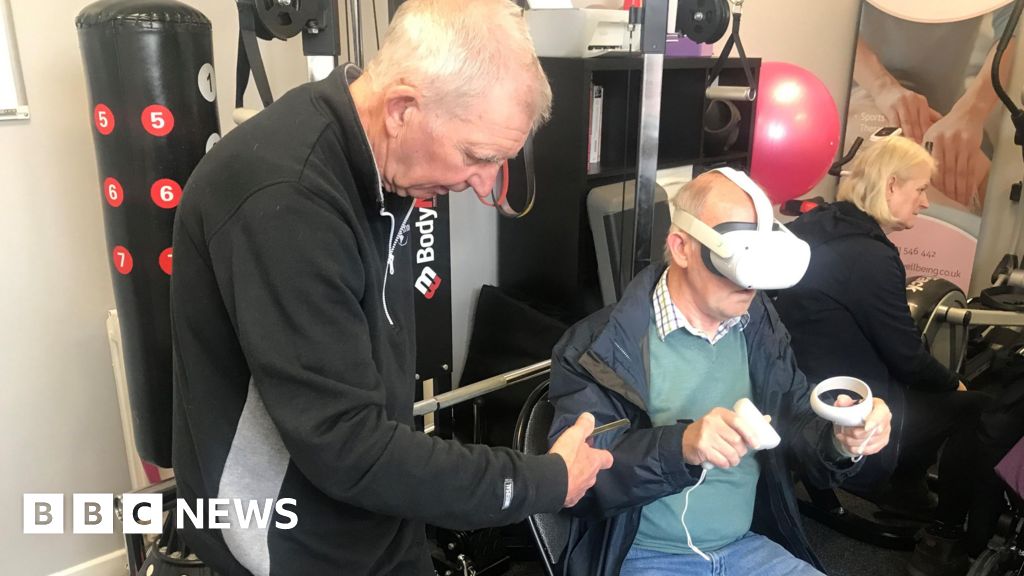
Unlocking a World of Possibilities: How Virtual Reality is Enhancing the Lives of People with Parkinson’s
Introduction
Virtual Reality (VR) technology has proven to be a game-changer in various industries, from gaming and entertainment to healthcare. One impactful area of application for VR is in improving the lives of people with Parkinson’s disease. By utilizing this immersive technology, individuals with Parkinson’s are able to overcome physical and cognitive limitations, empowering them to engage in activities they once thought impossible.
Understanding Parkinson’s Disease
Parkinson’s disease is a neurological disorder that gradually affects movement and coordination. Its most common symptoms include tremors, stiffness, impaired balance, and a decline in cognitive function. While medications and physical therapy are typically prescribed to manage the symptoms, virtual reality is emerging as a complementary therapeutic tool that can augment conventional treatments and enhance overall well-being.
Enhancing Motor Skills
One of the main challenges faced by individuals with Parkinson’s is maintaining or improving their motor skills. VR technology has proven effective in addressing this challenge by offering tailored exercises and simulations specifically designed to target motor control and coordination.
Driving Recovery with Immersive Experiences
Virtual reality immerses Parkinson’s patients in simulated environments where they can engage in activities such as driving, cooking, or playing sports. These activities enable patients to practice motor control in a safe and controlled setting. VR interventions can help retrain the brain, improve muscle memory, and facilitate neuroplasticity, which is crucial for enhancing the recovery process.
Increasing Motivation and Compliance
Unlike traditional therapy sessions, which can become repetitive and monotonous over time, VR offers a dynamic and engaging experience. Through interactive games and visually stimulating scenarios, virtual reality therapy can significantly increase patient motivation and compliance. Patients are more likely to adhere to their rehabilitation exercises when they are presented in an enjoyable and immersive format.
Alleviating Anxiety and Depression
People with Parkinson’s disease often experience mental health challenges, such as anxiety and depression. The uncertainty and limitations surrounding their condition can take an emotional toll on patients. Virtual reality technology provides a powerful tool to alleviate these negative emotions and improve overall psychological well-being.
Creating a Sense of Calm and Relaxation
With virtual reality, individuals with Parkinson’s can be transported to serene and peaceful environments, allowing them to momentarily escape the realities of their condition. Whether it’s a virtual beach, a tranquil forest, or a scenic mountainside, VR experiences can induce a sense of calmness and relaxation, effectively reducing stress levels and promoting mental well-being.
Social Connection and Support
Isolation is a common occurrence for individuals with Parkinson’s, as their symptoms often restrict their mobility and limit their ability to partake in social activities. Through the power of virtual reality, patients can connect with others who may share similar experiences. Virtual support groups and social platforms enable individuals to foster relationships, receive guidance, and offer support to one another, effectively combating feelings of loneliness and isolation.
Experiencing Empathy and Raising Awareness
While providing therapeutic applications, virtual reality can also serve as a valuable tool for creating empathy and raising awareness about Parkinson’s disease. By enabling healthy individuals to experience the symptoms and challenges faced by Parkinson’s patients through immersive simulations, VR fosters a deeper understanding and empathy for the plight of those with the condition.
Increasing Empathy among Caregivers and Family Members
Caregivers and family members of individuals with Parkinson’s can utilize VR simulations to better grasp the daily struggles faced by their loved ones. Empathy drives improved care and support by enabling caregivers to personalize their approach and provide assistance that directly addresses individual needs.
Promoting Public Understanding and Support
Virtual reality experiences offer a unique perspective into the challenges of living with Parkinson’s. By showcasing these experiences to the public, VR plays a pivotal role in educating society about the realities of the disease. Increased awareness often translates into improved support, funding, and research for Parkinson’s initiatives, fostering a more compassionate and inclusive society.
Key Takeaways:
– Virtual Reality (VR) technology has transformed the lives of individuals with Parkinson’s by enhancing motor skills and relieving anxiety and depression.
– With tailored exercises and immersive experiences, VR offers a dynamic and engaging therapy option that aids in recovery and increases patient compliance.
– Teasing the landscape of perceived realities, VR fosters empathy, empowering caregivers and raising public support for Parkinson’s awareness.
Frequently Asked Questions
Conclusion
In conclusion, virtual reality is revolutionizing the lives of people with Parkinson’s disease, offering new possibilities for rehabilitation, mental well-being, and public advocacy. As this technology continues to advance, it holds the potential to transform healthcare practices and empower individuals to live fulfilling lives despite the challenges posed by Parkinson’s. By embracing the virtual reality revolution, we can unlock a world of possibilities for those with Parkinson’s disease.
Source: insidertechno.com